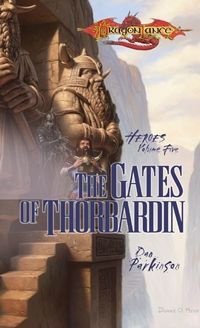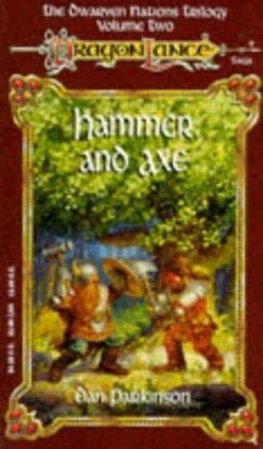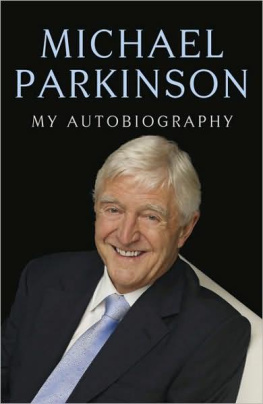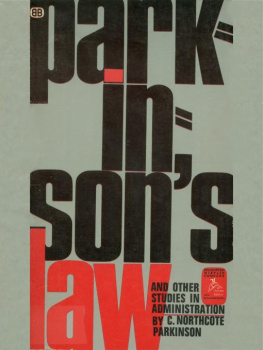Dan Parkinson - The Swordsheath Scroll
Here you can read online Dan Parkinson - The Swordsheath Scroll full text of the book (entire story) in english for free. Download pdf and epub, get meaning, cover and reviews about this ebook. genre: Romance novel. Description of the work, (preface) as well as reviews are available. Best literature library LitArk.com created for fans of good reading and offers a wide selection of genres:
Romance novel
Science fiction
Adventure
Detective
Science
History
Home and family
Prose
Art
Politics
Computer
Non-fiction
Religion
Business
Children
Humor
Choose a favorite category and find really read worthwhile books. Enjoy immersion in the world of imagination, feel the emotions of the characters or learn something new for yourself, make an fascinating discovery.

- Book:The Swordsheath Scroll
- Author:
- Genre:
- Rating:4 / 5
- Favourites:Add to favourites
- Your mark:
- 80
- 1
- 2
- 3
- 4
- 5
The Swordsheath Scroll: summary, description and annotation
We offer to read an annotation, description, summary or preface (depends on what the author of the book "The Swordsheath Scroll" wrote himself). If you haven't found the necessary information about the book — write in the comments, we will try to find it.
The Swordsheath Scroll — read online for free the complete book (whole text) full work
Below is the text of the book, divided by pages. System saving the place of the last page read, allows you to conveniently read the book "The Swordsheath Scroll" online for free, without having to search again every time where you left off. Put a bookmark, and you can go to the page where you finished reading at any time.
Font size:
Interval:
Bookmark:
Dan Parkinson
The Swordsheath Scroll
Prologue
The Slave
In the centuries following tbe "Wizards War," tbe mighty achievement of the dwarven nation of Thorbardin was to establish a golden age in which the embattled thanes of Kal-Thax came together under a council of chiefs to construct the subterranean fortress of Thorbardin. This was a time of relative peace and prosperity. It was, though, a short-lived age. Without serious threat from beyond the dwarven realm, old jealousies and unresolved rivalries once again began to surface among the thanes.
It had been resolved long since that there would be no king of Thorbardin. Thus all of the thanes within the fortress nation went their own way, held together in common cause only by the inspired wisdom of an aging group of chieftains serving as the Council of Thanes. But by the fiftieth year after Thorbadin's completion, the Council of Thanes had begun to lose its force. Some said the old order ended the day Willen Ironmaul of the Hylar, who had once served as Chief of Chiefs, quit. He resigned his I seat in disgust when, following the death of the old Thei-war chieftain, the Theiwar proved unable to agree upon a new chief and instead divided themselves into two warring camps.
Olim Goldbuckle, the Prince of the Daewar, had died years earlier, and his successor was far more interested in enhancing the grandeur of Daebardin-the huge Daewar city on the northeast shore of the Urkhan Sea-than in the workings of the overall realm.
The Daergar, no longer led by the wisdom of old Vog Ironface, had withdrawn to their mines and their smelters and rarely bothered even to send a representative to council. Within three years of the death of the old Theiwar chief, Slide Tolec, Thorbardin had become a dismal, dangerous place where steel rang on steel almost daily as rival bands of Theiwar stalked one another along the subterranean roads. Daewar and Daergar tribal leaders withheld their tariffs from the council coffers to maintain their own separate guard units for their own holdings, and even the wild, unpredictable Klar-who had surprisingly maintained their loyalty to the Hylar concept of a united nation longer than some other clans-were drawn from central concerns by the necessity of defending the farming warrens from becoming battlegrounds.
Thus when the Hylar, Willen Ironmaul, resigned, the Council of Thanes all but ceased to exist, and the managing of Thorbardin's mighty systems-its defenses, its waterways, its roads and ventilation systems, its stores and even its trade with the outside world-fell to the wardens, whose only authority consisted of continuing to do exactly what had been done before.
The fortress nation, sprawling in dissolution beneath its mountain peak, became hardly more than a collection of squabbling cities and rivalrous tribes, bound together only by proximity.
The dark ages of Thorbardin began then, and little would ever be known of those next centuries except for the occasional scribings of Hylar and Daewar scrollsters who kept sporadic records of the times.
All through the turmoil of the Theiwar conflicts, the dark-sighted Daergar stubbornly continued their mining and smelting of ores, and the jovial, wily Daewar maintained a semblance of trade with the Neidar settlements beyond Thorbardin and with some of the human and elven traders who came to their borders. The Klar kept the farms going, and the wardens somehow kept the roads clear, the water flowing, and the lifts operating.
But only among the Hylar, in their growing city of Hybardin, delved into a gigantic stalactite rising above the Urkhan Sea, were records of lineage kept which would survive the "warring times" of those centuries. And as time passed, even the Hylar records became sparse and less reliable.
Of the four children of Colin Stonetooth, the visionary first chieftain of the Hylar who initially brought the mountain thanes together, only one had remained in Thorbardin after the Wizards War. Cale Greeneye was gone, preferring the Neidar life outside to the Holgar life within the fortress. His brother Handil had long since died and was buried beneath the rubble of the ancient city of the Calnar in the far-off Khalkist range, while the second son, Tolon Farsight, had remained there as leader of the Calnar. Only the old chieftain's daughter, Tera Sharn, lived out her life in Thorbardin as wife of Willen Ironmaul.
Their only child, Damon, married a Neidar girl soon after the Wizards War. Damon's first son, Dalam Fire-blend, became chief warden of Tharkas, far to the north of Thorbardin. Dalam's younger brother Cort succeeded Willen Ironmaul as chieftain of the Hylar, then passed the role to his own son, Harl Thrustweight.
Harl Thrustweight became known in Thorbardin as 'The Iron Fist." It was his stubborn intervention-backed by grim companies of armed Hylar streaming out of Hybardin-that finally put an end to the anarchy of the Theiwar battles and once again restored a semblance of order to the undermountain realm. With angry efficiency, Harl Thrustweight reestablished the Council of Thanes and the Halls of Justice.
Beyond Thorbardin, among humans and elves, this dwarven leader-whom none outside of Thorbardin had ever seen-was known as Hal-Thwait. Many humans, and others, in surrounding lands came to believe-from comments passed by traders-that Thorbardin was a kingdom and "Hal-Thwait" was the name of the king of the dwarves. Even among the outside-dwelling Neidar, scattered throughout the protectorate of Kal-Thax, there were many dwarves who accepted that Thorbardin now had a king. Those who knew otherwise made no effort to correct the human and elven traders who referred to King Hal-Thwait. The humans and the elves were outsiders, and as far as the dwarves were concerned, outsiders could believe anything they wanted about Thorbardin. It was none of their business, anyway.
The "Hylar Peace" in Thorbardin and the mountain realm it protected, enforced by Harl Thrustweight, lasted more than a hundred years, which was forty years longer than the reign of Harl Thrustweight as chieftain of the Hylar and senior member of the Council of Thanes. In the Year of Iron, of the Decade of Willow, Century of Rain, the great chieftain and seven of the ten members of his elite guard were crushed in a rockfall near the entrance to the city of Theibardin.
A Daewar leader, Jeron Redleather, and a Hylar soldier, Dunbarth Ironthumb, took over the coordination of events in Thorbardin following Harl Thrustweight's death. Through sheer determination, the two of them kept the Council of Thanes going and maintained a troubled peace in Thorbardin.
Unfortunately, Harl Thrustweighf s only child, a grown son named Derkin Winterseed, disappeared on an expedition to Tharkas Pass.
* * * * *The iron shackles they had placed on his ankles, hammered into place and secured with hot rivets in the manner of bonds intended never to be removed, had been an agony to him for a long time. First there had been the deep burns from the riveting, then the open, bleeding sores caused by the constant rubbing of the rough iron against his skin. But what had lasted longest were the aches in his back and his legs, from hobbling around each long day, dragging the loose, eight-foot length of heavy chain which connected the shackles. That, and the deep, patient anger within him.
He had borne the pains in stubborn silence, just as he bore the welts on his back from the overseers' whips, and eventually the wounds had healed over and the pains had subsided. Now his ankles were toughened by bands of heavy callus that had formed over the scars there, and his legs and back had grown accustomed to the awkward weight of the chain clanking behind him as he labored up and down the dim reaches of rough-delved mine shafts, his hod filled with raw ore from the digs below, or with tools and torches on each return trip.
Font size:
Interval:
Bookmark:
Similar books «The Swordsheath Scroll»
Look at similar books to The Swordsheath Scroll. We have selected literature similar in name and meaning in the hope of providing readers with more options to find new, interesting, not yet read works.
Discussion, reviews of the book The Swordsheath Scroll and just readers' own opinions. Leave your comments, write what you think about the work, its meaning or the main characters. Specify what exactly you liked and what you didn't like, and why you think so.









